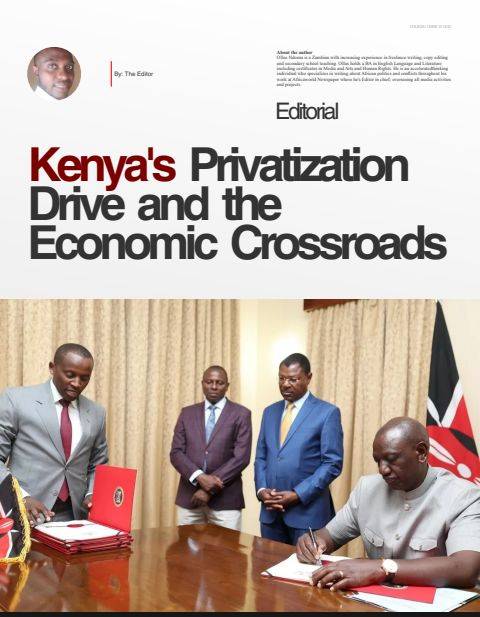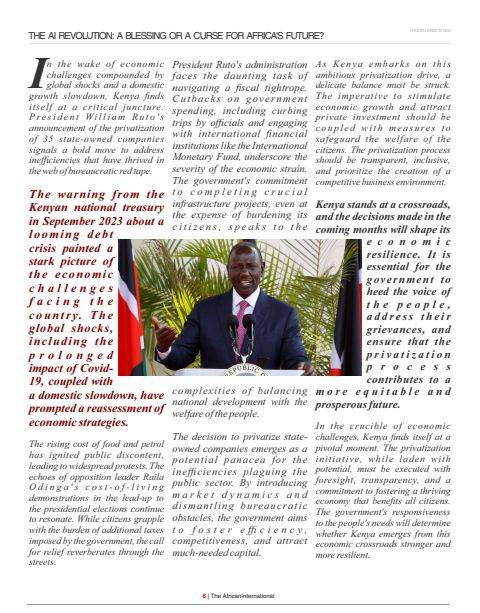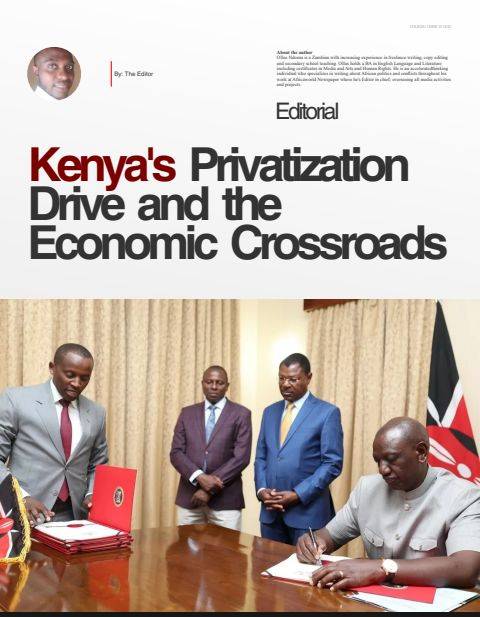
By: The Editor-in-Chief
In the wake of economic challenges compounded by global shocks and a domestic growth slowdown, Kenya finds itself at a critical juncture. President William Ruto’s announcement of the privatization of 35 state-owned companies signals a bold move to address inefficiencies that have thrived in the web of bureaucratic red tape.

The warning from the Kenyan national treasury in September 2023 about a looming debt crisis painted a stark picture of the economic challenges facing the country. The global shocks, including the prolonged impact of Covid-19, coupled with a domestic slowdown, have prompted a reassessment of economic strategies.
The rising cost of food and petrol has ignited public discontent, leading to widespread protests. The echoes of opposition leader Raila Odinga’s cost-of-living demonstrations in the lead-up to the presidential elections continue to resonate. While citizens grapple with the burden of additional taxes imposed by the government, the call for relief reverberates through the streets.
President Ruto’s administration faces the daunting task of navigating a fiscal tightrope. Cutbacks on government spending, including curbing trips by officials and engaging with international financial institutions like the International Monetary Fund, underscore the severity of the economic strain. The government’s commitment to completing crucial infrastructure projects, even at the expense of burdening its citizens, speaks to the complexities of balancing national development with the welfare of the people.
The decision to privatize state-owned companies emerges as a potential panacea for the inefficiencies plaguing the public sector. By introducing market dynamics and dismantling bureaucratic obstacles, the government aims to foster efficiency, competitiveness, and attract much-needed capital.
As Kenya embarks on this ambitious privatization drive, a delicate balance must be struck. The imperative to stimulate economic growth and attract private investment should be coupled with measures to safeguard the welfare of the citizens. The privatization process should be transparent, inclusive, and prioritize the creation of a competitive business environment.
Kenya stands at a crossroads, and the decisions made in the coming months will shape its economic resilience. It is essential for the government to heed the voice of the people, address their grievances, and ensure that the privatization process contributes to a more equitable and prosperous future.
In the crucible of economic challenges, Kenya finds itself at a pivotal moment. The privatization initiative, while laden with potential, must be executed with foresight, transparency, and a commitment to fostering a thriving economy that benefits all citizens. The government’s responsiveness to the people’s needs will determine whether Kenya emerges from this economic crossroads stronger and more resilient.


